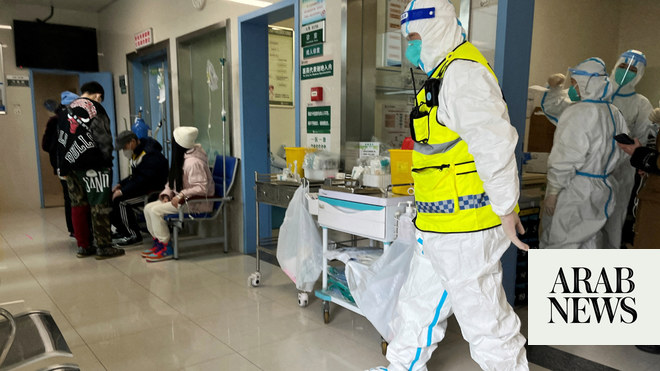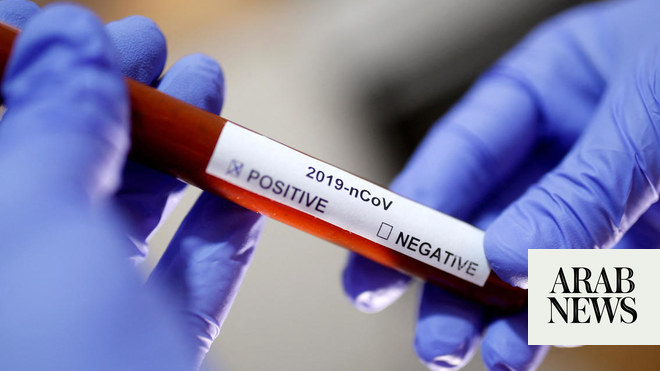
WASHINGTON — A classified report drafted last year warning that the COVID-19 pandemic might have leaked from a lab in Wuhan has reemerged as a focal point with lawmakers seeking to revive the search for answers.
The report, which was issued by researchers at the government-backed Lawrence Livermore National Laboratory in May 2020, found that it was possible that the coronavirus escaped from a lab in Wuhan, according to four people familiar with the document, at a time when that line of inquiry was considered politically taboo.
It"s not clear how influential the paper"s findings were in advancing the government"s understanding of the virus"s origins nor whether the document weighed in on a simmering debate over whether the kind of research being done on coronaviruses at the lab might have contributed to the creation of COVID-19.
The report also found that virus might have developed naturally in the wild — echoing what the intelligence community now says it believes — and multiple sources familiar with the document downplayed its significance.
But the report has taken on fresh political power on Capitol Hill as the possibility that the pandemic emerged from research done at the Wuhan Institute of Virology has gained mainstream legitimacy in recent months.
The document has been quietly available to key lawmakers on Capitol Hill since last year, according to two congressional sources. But some Republicans on Capitol Hill are expressing frustration that they didn"t have access to the document sooner. Republican members of the Energy and Commerce committee have pressed the Energy Department in recent weeks for more information about the report, which is classified "top secret."
"I think a lot of us think various oversight committees probably should have been made aware of [the report] a little bit sooner," said Rep. Morgan Griffith, a Republican from Virginia who sits on the House Energy and Commerce Committee. The panel"s Republicans have been conducting their own inquiry into the origins of COVID-19, and have also requested additional documents from the National Institute of Health, the Department of Homeland Security and State Department.
"(Livermore) is one of the places we want to get answers from because we think they have a bigger piece of the puzzle than we originally thought back in March," Griffith said.
Sinclair Broadcast Group was first to report on the document"s existence.
One year after it was first issued, the report matters now not so much for what it reveals, but because it offered some early support for the theory that the virus leaked from a lab in Wuhan at a time when, at least publicly, the intelligence community was affirming that it believed the virus was not "manmade" and likely originated naturally.
Meanwhile, two former officials close to the Trump administration"s investigations into the pandemic"s origins say that the Livermore report wasn"t discovered by policymakers probing the matter until months after its production — raising the specter for some former officials of so-called "deep state" career bureaucrats inappropriately burying information that validated the political pursuits of the Trump administration.
Still, other congressional officials familiar with the report — even those who support an investigation into the lab leak theory — say the Energy committee Republicans are touting its findings now as a purely political ploy aimed at validating Trump, whose championing of the lab-leak theory these people believe politicized the search for COVID-19"s origins.
A House Intelligence Committee official said that panel has already reviewed the document as part of its investigation and two other congressional staffers said that lawmakers on at least two other committees previously had access to the information in the report and were briefed on its findings last year — if they had wanted it. It is not clear if the Energy and Commerce committee lawmakers were among those that knew of the report"s existence.
Multiple sources cautioned CNN that the document doesn"t offer any "smoking gun" that proves one theory over the other. The report largely comes to the same conclusion that the intelligence community has disclosed publicly in recent weeks, according to multiple people familiar with it — namely, that the "zoonotic" theory of the virus" origins and the lab leak theory are both plausible. But it does offer some circumstantial evidence supporting the lab leak theory, validating what was then considered a fringe notion.
Republicans are pushing the administration to declassify more information that the US government already has that could help scientists and public health experts come closer to an answer.
The Department of Energy — which oversees Livermore and the other National Labs — briefed House Energy and Commerce committee staff last week about the report, according to two people familiar with the classified session, and the panel is now pushing for a fuller briefing for all members. The Labs, a collection of 17 elite scientific research facilities, will play a key role in the 90-day intelligence review of coronavirus" origins that President Joe Biden announced publicly last month, a White House official said.
An evolving narrative
The congressional interest in the Livermore report comes as the Biden administration and the scientific community have said publicly that there is a legitimate possibility that the coronavirus might have escaped a lab in Wuhan — leaving Republicans, who have long advanced that theory, feeling vindicated.
For much of 2020, pursuing the lab leak theory was treated publicly as xenophobic, and, thanks in part to an open letter signed by 27 scientists and published in an influential medical journal in February 2020, scientifically unsound.
But in recent months, classified intelligence has emerged that three researchers at the Wuhan Institute of Virology who were conducting the kind of controversial research that some scientists now believe may have led to the pandemic had gotten sick in the autumn of 2019, before the outbreak was known to have begun.
It also became public that the open letter — whose signees wrote at the time that they "strongly condemn conspiracy theories suggesting that COVID-19 does not have a natural origin" — was not just signed but organized by a scientist involved in funding the kind of research at the Wuhan Institute of Virology that other scientists now believe could have spawned SARS-Cov-2.
Several of the scientists involved have since said they believe the inquiry into the pandemic"s origins should include looking at the possibility of a lab leak and, increasingly, the academic community has begun to offer publications laying out evidence supportive of that theory.
Multiple congressional sources bemoaned the degree to which the lab leak theory was sucked into the politics of the day, with some arguing that Trump"s public support of that hypothesis actually made it harder to investigate it as a serious line of inquiry. At the time, critics argued that Trump was pushing the theory as a way to shift blame for the rising death toll away from his administration"s handling of the pandemic, and onto China — instantly tainting the objectivity of any effort to probe that hypothesis. His xenophobic language surrounding the virus — calling it the "kung flu" — further stigmatized the inquiry.
But former Trump administration officials now say their interest in that theory has been justified as serious, rather than politically-motivated — and that their efforts to probe the matter were stymied by public health agencies, as well as the intelligence community.
Internal investigations
Former US Secretary of State Mike Pompeo, who publicly championed the lab leak hypothesis while in office, on Thursday told Fox News" Laura Ingraham that the National Institutes of Health "were trying to suppress" State Department efforts to probe the Wuhan Institute of Virology.
"It was good work by the State Department team. We overcame lots of internal bureaucracy," Pompeo said.
"There were folks all over the [intelligence] community who just didn"t want to talk about this, who wanted to stay focused on other things," Pompeo said later in the interview.
In April of 2020 — a month before the production of the Livermore report — the intelligence community issued a rare statement saying that while it would continue to investigate the virus"s origins, it "concurs with the wide scientific consensus that the COVID-19 virus was not manmade or genetically modified."
Beginning in spring of 2020, two small groups of Trump administration officials were running parallel investigations into the virus" origins: one in the State Department and one in the directorate at the National Security Council responsible for biodefense.
Officials involved in both of those reviews now say that their efforts to probe the validity of the lab leak theory faced pushback from the intelligence community.
"We were asking very pointed questions," said one former Trump official, who said that their efforts were "dismissed." — CNN












